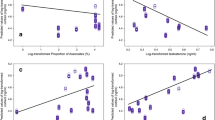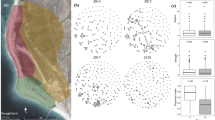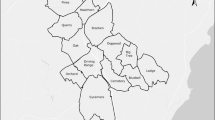Abstract
RECENT work on red grouse (Lagopus lagopus scoticus) on a moor at about 300 m altitude in Scotland1 indicates that the spring breeding stock is largely determined the previous autumn. Each year, cock grouse established a new pattern of territories in August–September, and the number and shape of these territories was maintained with only minor changes till the next breeding season in April–May. Any cocks which did not obtain territories in autumn did not breed the next summer, and mostly died before April. Thus the size of the breeding stock was annually determined through the birds' competition for territories. The chief problem was to find what controls the size of the territories.
This is a preview of subscription content, access via your institution
Access options
Subscribe to this journal
Receive 51 print issues and online access
$199.00 per year
only $3.90 per issue
Buy this article
- Purchase on Springer Link
- Instant access to full article PDF
Prices may be subject to local taxes which are calculated during checkout
Similar content being viewed by others
References
Jenkins, D., Watson, A., and Miller, G. R., J. Anim. Ecol., 32, 317 (1963).
Jenkins, D., Ibis. 103 a, 155 (1961).
Author information
Authors and Affiliations
Rights and permissions
About this article
Cite this article
WATSON, A. Aggression and Population Regulation in Red Grouse. Nature 202, 506–507 (1964). https://doi.org/10.1038/202506a0
Issue Date:
DOI: https://doi.org/10.1038/202506a0
This article is cited by
-
Öko-ethologische Voraussetzungen für die Entwicklung von Polygamie bei Rohrsängern (Acrocephalus)
Journal für Ornithologie (1985)
Comments
By submitting a comment you agree to abide by our Terms and Community Guidelines. If you find something abusive or that does not comply with our terms or guidelines please flag it as inappropriate.



